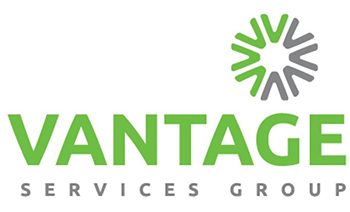In the ever-evolving world of education and learning, where details flows abundantly and access to knowledge is just a click away, student-driven encyclopedias are becoming a dynamic tool in the discovering procedure.

These systems not just give pupils with a database of details yet additionally urge them to contribute, modify, and curate content, cultivating a collaborative and interactive knowing atmosphere.
As academic standards shift in the direction of more participatory and comprehensive versions, the concept of student-driven encyclopedias embodies this change. These platforms empower pupils to come to be energetic individuals in knowledge production, connecting the void between conventional textbook discovering and contemporary electronic resources.
The Idea of Student-Driven Encyclopedias
Student-driven encyclopedias are electronic systems where trainees collectively gather, validate, and share details on a large array of subjects. Unlike typical encyclopedias, which are usually created by professionals, these systems take advantage of the collective efforts of students to produce a detailed body of expertise.

At their core, student-driven encyclopedias are developed to grow crucial thinking, research skills, and digital proficiency amongst students. By participating in the process of web content creation, pupils find out to navigate and review info critically, abilities that are crucial in today’s information-rich culture.
Additionally, these systems act as a space for pupils to discover their passions and share their expertise. This democratic approach to expertise production makes sure that a diverse variety of point of views and voices are represented, improving the discovering experience for all participants.
- Pupils get hands-on experience in research and web content development.
- Urges collaboration and peer interaction.
- Advertises a deeper understanding of subject.
- Fosters inclusivity and diversity in understanding depiction.
In essence, student-driven encyclopedias transform students from passive recipients of details right into active contributors, instilling a sense of ownership and obligation in their educational journey.
Advantages of Student-Driven Encyclopedias
One of the principal benefits of student-driven encyclopedias is the advancement of necessary 21st-century skills. As trainees take part in the process of web content creation, they develop their essential thinking, electronic literacy, and interaction skills, every one of which are essential in today’s interconnected world.
Furthermore, these platforms urge a collective knowing atmosphere, where trainees can interact to confirm details, dispute various perspectives, and co-edit posts. This peer-to-peer interaction not just improves finding out results however likewise fosters a sense of community and shared regard amongst trainees.
Moreover, student-driven encyclopedias provide a platform for showcasing student work. As students add to the encyclopedia, they build a edtech platform portfolio of their study and writing, which can be important for additional academic and professional quests.
Obstacles and Limitations

In spite of the various benefits, student-driven encyclopedias additionally deal with certain challenges. Guaranteeing the precision and integrity of info is extremely important, as these systems rely on payments from pupils that might not yet possess expert-level knowledge.
- Maintaining material quality and precision.
- Giving sufficient guidance and support.
- Making certain equitable access and inclusivity.
To reduce these difficulties, several student-driven encyclopedias implement a system of checks and balances, where content is examined by instructors or experts before magazine. This ensures that the info provided is both accurate and reliable, promoting the stability of the system.
The Future of Student-Driven Encyclopedias
As innovation remains to development and the landscape of education and learning evolves, the capacity for student-driven encyclopedias is large. These systems have the ability to not only enhance standard academic sources however additionally redefine the method expertise is acquired and shared.
In the future, we might see student-driven encyclopedias incorporating more advanced modern technologies such as expert system and artificial intelligence to improve material curation and customization. Additionally, they might broaden past textual details to consist of multimedia web content, supplying an extra immersive discovering experience.
Equipping the Next Generation
Student-driven encyclopedias hold the promise of empowering the future generation of students. By positioning pupils at the helm of knowledge creation, these platforms motivate long-lasting learning, inquisitiveness, and intellectual self-reliance.
In conclusion, as educational systems remain to introduce, student-driven encyclopedias stand as a testimony to the power of cooperation and the value of trainee company in the knowing procedure. By welcoming these systems, we unlock to a more comprehensive, engaging, and vibrant educational experience for all.
